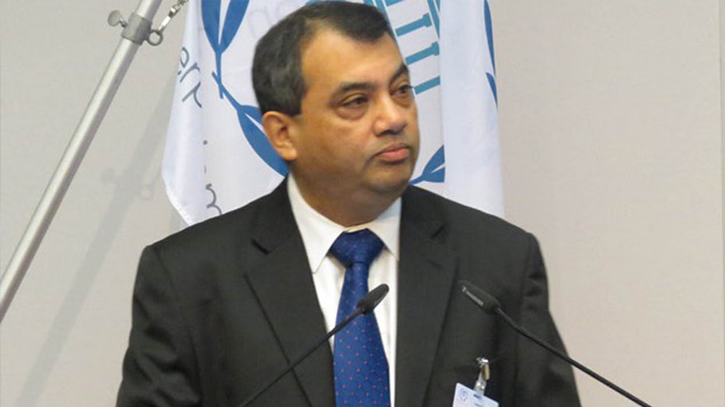
Photo: Collected
Environment, Forest, and Climate Change Minister Saber Hossain Chowdhury stressed the significance of nature-based water management in addressing the prevailing crisis.
He highlighted the escalating challenges of salinity and food scarcity attributed to climate change, emphasizing the imperative for collaborative efforts among the ministries of Agriculture, Water, and Environment to mitigate these crises.
Emphasizing an environmentally conscious approach, the minister urged for comprehensive solutions.
Speaking as the chief guest during a webinar organised by the 3rd Coastal Water Conference Committee at their Khulna Secretariat office on World Water Day 2024 on Thursday (21 March), Khulna City Corporation Mayor Talukdar Abdul Khaleque chaired the event.
The panel discussion featured eminent experts including Emeritus Professor of BRAC University Dr. Ainun Nishat, Farah Kabir, Country Director of ActionAid Bangladesh, Mohammad Zobair Hasan, Deputy Executive Director of DORP), Dr. Md. Golam Rabbani, Head at Climate Bridge Fund Secretariat of BRAC), Md. Shamsuddoha, Chief Executive of CPRD), and Prof. Dr. Mujibur Rahman of Environmental Science Discipline at Khulna University.
Shamim Arfeen, Member Secretary of the Coastal Water Convention Committee and Executive Director of AOSED, along with other dignitaries including lawmaker Shammi Akhtar and Khulna WASA’s Managing Director Abdullah, among others addressed the webinar.
Water and Climate expert Professor Dr. Ainun Nishat emphasized the urgency of addressing water-related issues, citing instances where regions such as Khulna, Bagerhat, Satkhira, and parts of Barguna have already become uninhabitable.
He underscored the absence of a dedicated authority for water management in the country and pointed out the need for modernizing existing infrastructures like the coastal dam, constructed in the sixties.
Dr. Nishat advocated for the enforcement of existing laws related to water management and stressed the adoption of international basin-based management strategies, along with promoting the use of surface water, rainwater conservation, and the development of fresh water reservoirs as indispensable measures.
Messenger/Mumu








